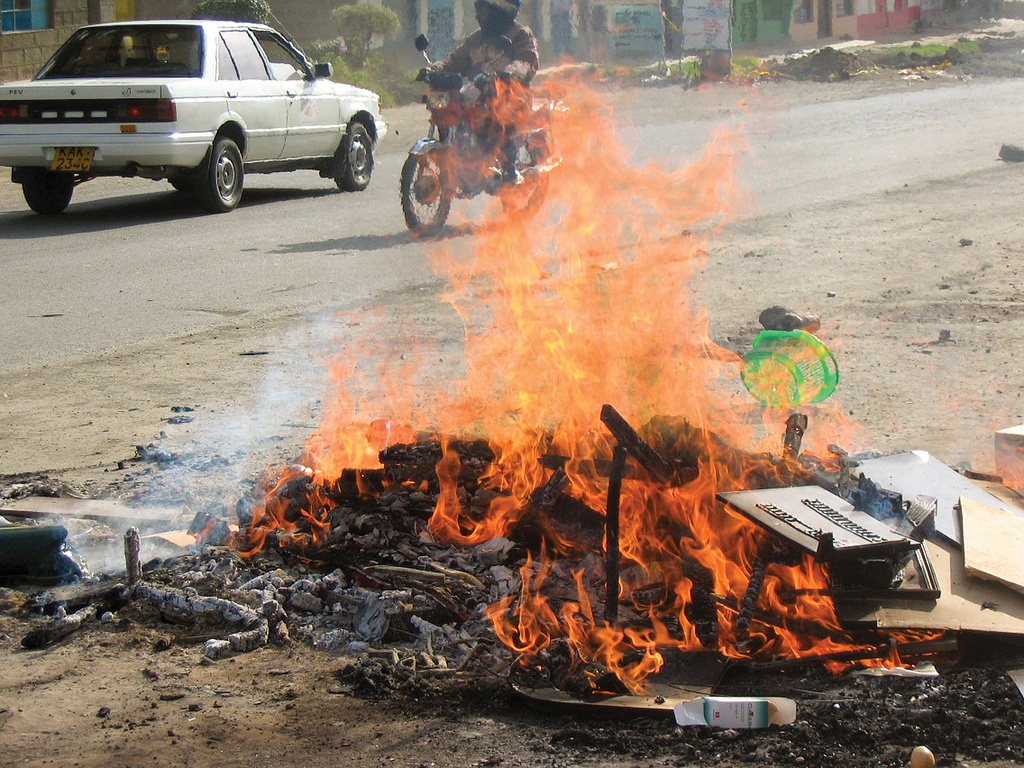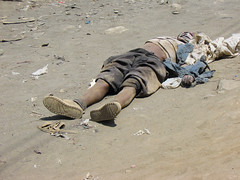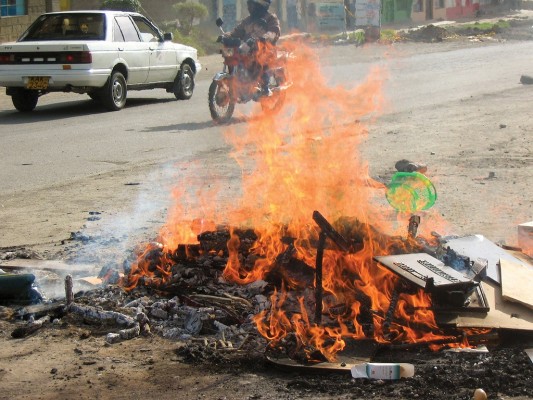
The race leading up to the December 2007 election between presidential incumbent Mwai Kibaki and opposition candidate Raila Odinga was tight. Early returns showed Odinga leading substantially.
Then there was a sudden shift in the reporting of votes. Kibaki took the lead for inexplicable reasons. International observers reported anomalies in the way votes were being counted, suggesting rigging of the polls.
Odinga and his supporters protested. Odinga declared himself the “people’s president.” Kibaki dismissed their complaints. Fanned by inflammatory media reports (the Kenyan media tend to subscribe to one or another political party) angry people – most of them young men who were unemployed or under-employed – took to the streets to battle those perceived as being on the other side.
As is common in some parts of post-colonial Africa, political allegiances in Kenya tend to run along ethnic lines.
President Kibaki’s base is Kikuyu, the largest single ethnic group in Kenya, comprising about 22 percent of the population. He got support from the Kamba and Kisii, adding up to a total of about 39 percent of the population in Kibaki’s camp.
Challenger Odinga is Luo, a group numbering about half as many as the Kikuyu – or 13 percent of the population. In this election, however, some other ethnic groups joined the Luo in supporting Odinga, including the Kalenjin and Luhya. This brought support for Odinga to about 40 percent of the population. Kenya has 43 mostly smaller ethnic groups, who tended to support the opposition.

Thus challenger Odinga’s voter base at least matched and may have exceeded President Kibaki’s in this election.
Kenya has had three presidents since gaining independence from Britain in 1963. The first, Jomo Kenyatta, and third (current president) are Kikuyu. In between came Daniel arap Moi, who was a Kalenjin and who ruled for a very long period, from 1978 until 2002, when he was constitutionally barred from continuing.
In the booklet Peace and Reconciliation as a Paradigm, Dr. Hizkias Assefa notes that “in many African societies, losing an election can mean exclusion from power for an entire ethnic group, followed by discrimination and even repression. This can therefore foster the mentality among competing parties that they must win at all cost.”
In other words, elections in Kenya can be literal battlegrounds, with groups feeling that their very existence is at stake since they have no assurance of their well-being and security if their group loses.
This sense of insecurity is played upon by politicians seeking election. “If you elect me, I will watch out for you” is a message guaranteed to attract votes, especially when paired with: “If you don’t, your suffering will worsen.”
[Photos by Charles Nyoike Ndegwa.]
